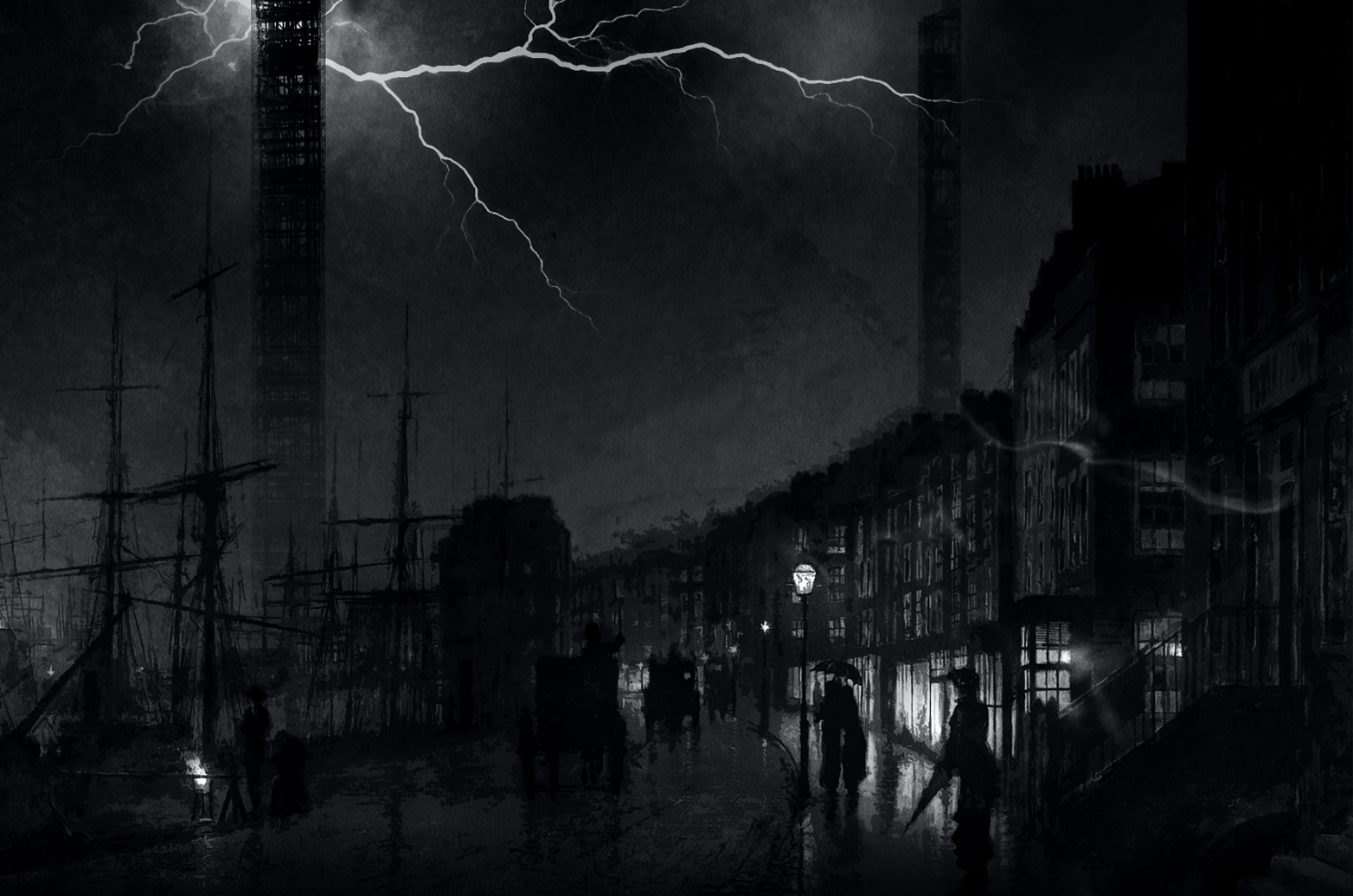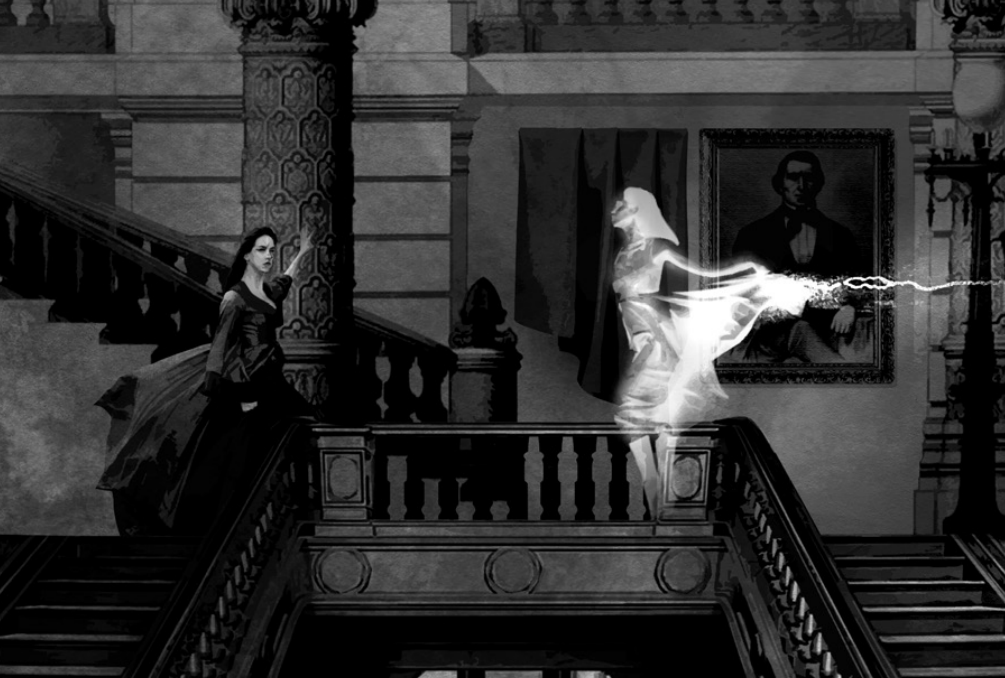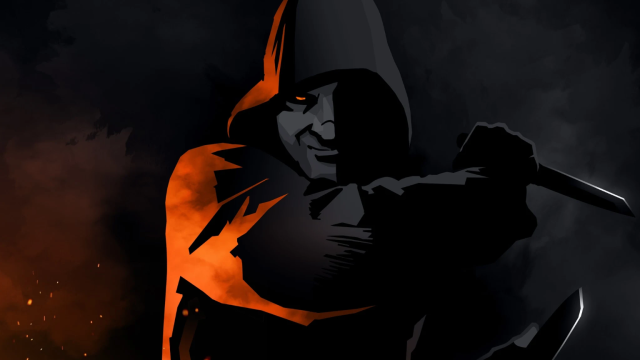If the industrial, supernatural world of Blades in the Dark was the backdrop for anything other than a tabletop role-playing game, I’d have written daily letters to its creator begging them to make it into one. Blades in the Dark‘s world is so full of noir curiosities that it begs players to insert themselves in, and fortunately, its narrative-based ruleset accommodates that in any way you want to try it.
Blades in the Dark. Image: John Harper
Blades in the Dark, released early 2017 by game designer John Harper, is a game for storytellers. All players are “scoundrels” whose gang must find a way to thrive in the criminal underbelly of the city Doskvol. There, in the haunted harbour city encircled by ghost-repellent towers, mischief flourishes just like the mushroom gardens grown by its residents.
After a cataclysm that shattered the Sun, the world is dark except for Sun shards that hang in the sky. Doskvol runs off generators fuelled by the blood of demon whales called leviathans, which are hunted in the north. The smallest unit of currency, “one coin”, is the monetary equivalent of a briefcase full of cash.
It’s a very, very cool setting for players to find and make trouble in, and Blade in the Dark‘s narrative-propelling ruleset accommodates whatever hijinks they want to get up to.
Playing is simple. There’s a game master who sets up the world and its residents, planning out stories for the players to interact with. Blades in the Dark‘s manual simply contains a setting and a ruleset with a few cues for campaigns, so the brunt of the game-running labour is on game masters.
Players each pick a class – cutter (fighters), hound (trackers), spider (mastermind) and so on. Then, they pick a class for their crew – assassins, cult, smugglers, hawkers and so on.
Players gain experience by addressing story challenges with whatever virtues their class extols. So, as a “spider”, a player can level up by solving a problem with conspiracy or calculation.
Crews have their own classes, which determines what sort of goals the team has, such as up-selling vintage ghost weapons or “disappearing” targets. Players all decide on their crew’s reputation, which influences how residents of Blades‘ world interact with them. You start as nobodies.

Blades in the Dark. Image: John Harper
Everything in Blades in the Dark happens with a conversation and a six-sided die. Players hunt for and accomplish criminal operations. Say the players want to extort a magistrate. The group’s spider might have two points in the “sway” ability (out of a four maximum), so, after explaining what type of thing they will say to sway the magistrate, they will roll two six-sided die to see how it comes off.
A six on any die is an unmitigated success. Anything below has its consequences. If there are consequences, players can take on “stress”, which they relieve by indulging in their chosen vice – say, gambling or fighting.
Unlike widely-known tabletop games such as Dungeons & Dragons, which have their roots in combat-based wargaming, role-playing in Blades in the Dark never takes a backseat to number-crunching. Its mechanics never ask players to unplug from the role-playing experience.
At every step, they’re hooking players deeper and deeper into its world. Every step in character and crew creation, from finding vice purveyors to establishing a lair, asks players to flesh out the city of Doskvol with their fantasies.

Blades in the Dark. Image: John Harper
In lieu of smuggling contraband or spying on politicians, my crew decided to be lawyers. We’re what we call a “full service” law firm. Clients come to us to help with debt collection or get their gang members out of prison, but we’ll bend a little and blackmail magistrates if need be. It was an impulsive idea that, during our first session, gained a lot of momentum. Thankfully, the game is supple enough to let us run with it.
In tense moments when we have to convince volatile gang leaders that our client’s goals are in their interest, we painstakingly talk over our negotiation strategy in our gritty office space. To see whether it lands, the one with the most points in “sway” will roll a six-sided die.
When we were looking to purchase some new property to relocate a gang – through a shell company, of course – we each went about finding new turf using our characters’ particular skills, such as consulting a network of people or surveying streets.
What ultimately makes Blades in the Dark so special is how seamlessly its mechanics and its strange world work together. Levelling up is as easy as getting a little better at tracking and roughing up targets or moving shop to a fancier headquarters. Healing up after a failed mission isn’t just rolling a die; it’s heading over to the racetrack and gambling away a whole coin.
Getting better at Blades in the Dark isn’t about adding up some abstract numbers and continuing on your way. It’s plainly about telling a better story.

Comments
3 responses to “A Tabletop RPG For Storytellers Who Want To Be Infamous Criminals”
I am a professional D&D DM for kids and yet I am unfathomably excited to get back to playing this system this weekend after a year away.
I just can’t even…
Wait, professional? As in, you get paid? How do I get that job? I love DMing…
Get it?
I made it. Hundreds of dollars on books, speakers for music, years of experience working with children, time and exhaustion in marketing and consistent and never failing energy and patience in working with children.
But hey, give it a crack.